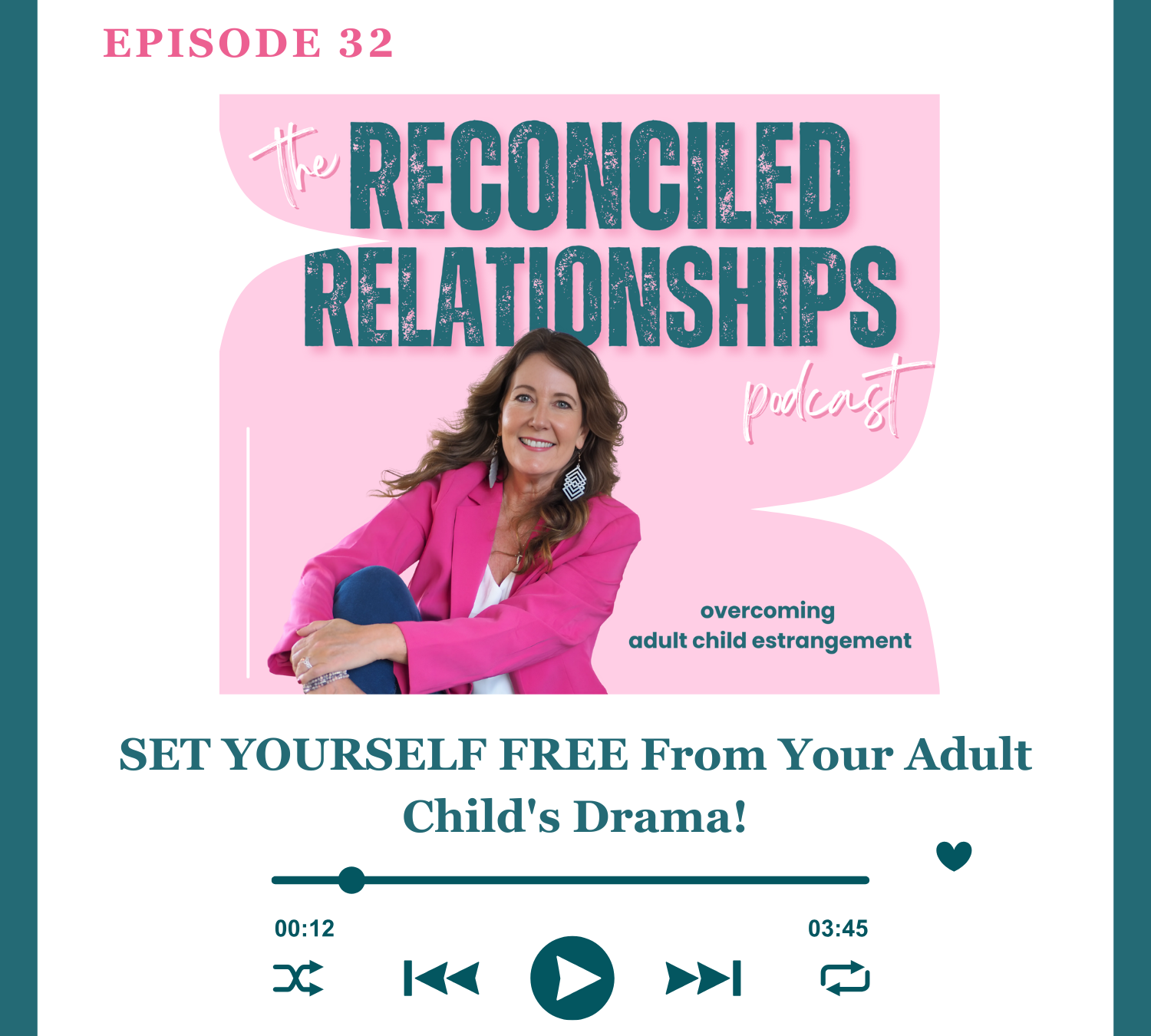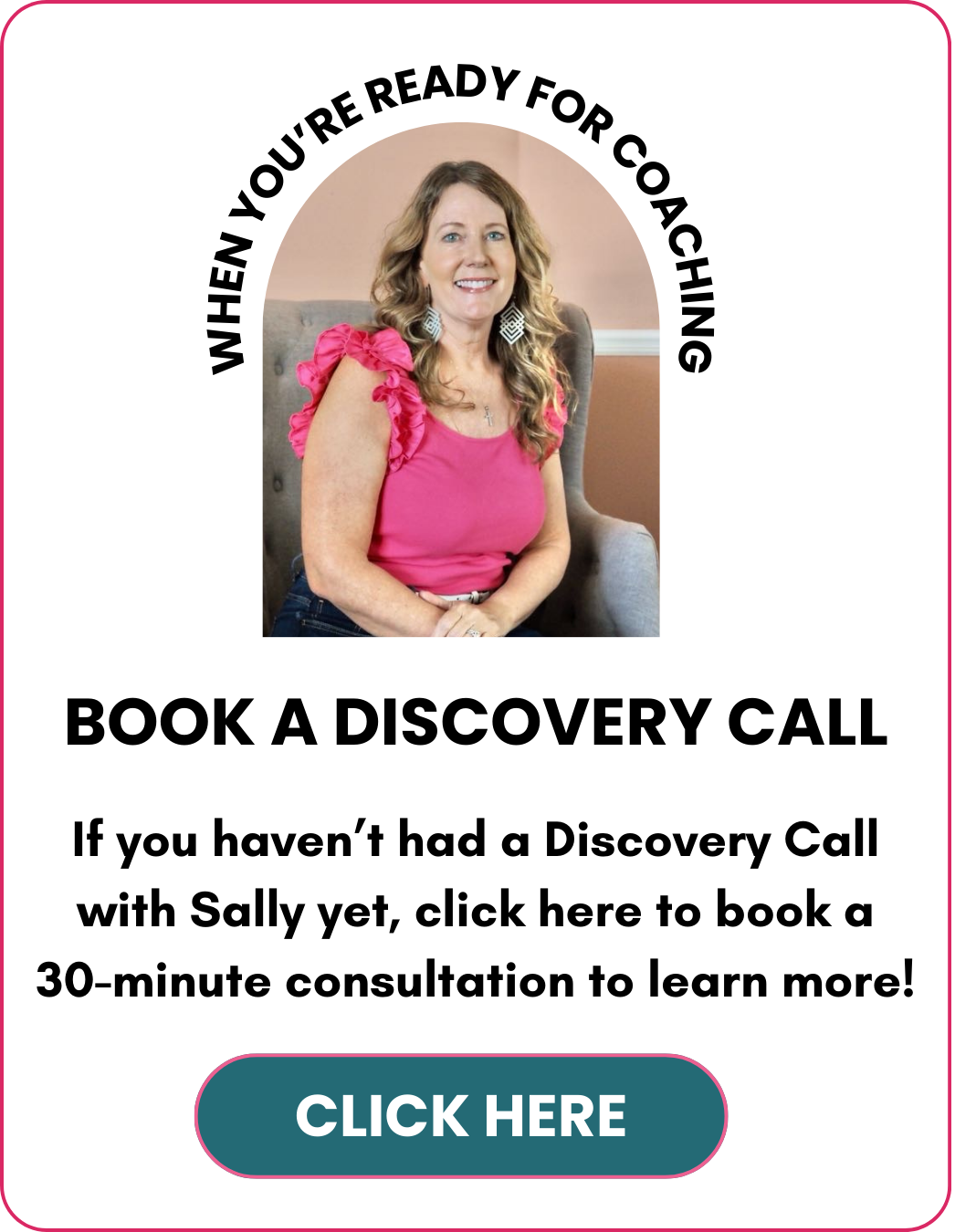WATCH THE EPISODE BELOW
LISTEN TO THE EPISODE BELOW
Estrangement between parents and adult children is a growing issue, deeply affecting many families. Moms, in particular, are feeling the emotional weight of this painful journey.
Social media, trauma, and communication breakdowns are key factors in this growing epidemic. Younger generations, feeling misunderstood or judged, are more likely to walk away from family, leaving parents in a state of confusion and isolation. Estrangement feels like a death without closure, and the emotional toll can lead to guilt, anxiety, and depression. The breakdown in communication often begins with small misunderstandings that escalate into silence. However, this divide is not about blame, but about understanding generational differences and evolving values. Even in the silence, God is working, and healing begins with the parent. No matter how far apart you feel from your child, there is always hope for reconciliation.
Healing starts with you, and by holding on to faith and seeking support, moms can navigate the pain of estrangement and find hope for restoration.
KEYPOINTS FROM THIS EPISODE
-
Healthy Detachment: Understanding that detaching doesn’t mean you don’t love your child; it’s about maintaining emotional well-being while offering support.
-
Signs of Over-Attachment: Constantly checking in, feeling responsible for your child's happiness, and taking on their emotional burdens.
-
Impact of Over-Attachment: Neglecting self-care, relationships, and personal goals due to emotional overload from your child’s struggles.
-
Practical Strategies for Detachment: Letting your child make their own mistakes, focusing on your own goals, and setting emotional boundaries.
-
Letting Go of the Need to Fix: Allowing your child to face challenges on their own to build resilience and accountability.
-
Supporting Without Absorbing Pain: Offering empathy and love without becoming emotionally drained, maintaining a balance to preserve your well-being.
-
Reclaiming Your Peace: Prioritizing self-care, surrounding yourself with supportive people, and trusting that this season of struggle will pass.
QUOTABLE MOMENTS
-
“Detaching is not about giving up; it’s about creating space for growth, both for you and your child.”
-
“You’re not responsible for their journey. You’re responsible for yours.”
-
“The moment we stop fixing everything for them is the moment they begin to build resilience.”
-
“Detachment isn’t about distancing; it’s about choosing peace over chaos.”
-
“Healthy detachment is the best way to support your child without sacrificing your own well-being.”
TRANSCRIPT OF THIS EPISODE
[00:00:00] It's so natural to want to protect them from pain. Like that was our job for 18 years.
As a mom, do you dream of creating a drama free zone in your life? Because if constant conflict and emotional chaos with your adult child has taken over, it's time to break the cycle. So I want to talk today about how you can reclaim your peace. Like I had to. And set some boundaries that protect your own well being.
I want to start off by talking a little bit about healthy detachment, because it's really what it is. It's not just about your child is dramatic,Some of your kids are truly struggling, and some are dramatic, let's be honest, right? And they could say the same about us, but I'm not here to bash your children.
I believe all of our kids truly love their family. And so healthy detachment is for the mom. That's who this is for today, This is for [00:01:00] you figuring out. How do I do that? Like, how do I care and support and still love my adult child without becoming so emotionally consumed by their struggle So you are going to need to find the balance.
there's a balance between offering love and support And maintaining your own emotional well being, and that's where moms get so confused because it is a very delicate balance, So, detaching, in my opinion, is often misunderstood because in reality, it's something that creates a space for both you and your child to grow.
They may not know that when you're actually doing it, and you may not even see it at first. But when you remain empathetic and supportive without letting their challenges dictate your peace of mind. So in other words, the codependency, if they're having a bad day, doesn't mean you have to have a bad day,
that's just a simple example. Number one is, what are some signs that tell you that you're [00:02:00] overly attached, we get so attached to our kids struggles because we love them, And I think a lot of moms don't realize how deeply over attached they have become through the years.
I want to share with you some common signs that I see. And a lot of these I dealt with myself. So, some of those signs are constantly checking on them, Even when they've asked for space. feeling anxious about every decision that they make. Believing you are responsible for every, piece of their happiness and success, success and failures.
Because if you're experiencing shame or failure, when they encounter a life challenge, then that's the same thing, We also, another thing to think about is recognizing that these behaviors are the first step towards really breaking the cycle of dependency over attachment. It's the [00:03:00] first step in detaching.
I want to share with you. A little bit of the impact of what happens if you're overattached, what happens to your own wellbeing, because it can lead to such overwhelming emotions. You know, we talk a lot here about guilt and shame and all of those frustration, helplessness, because when moms are so focused on their son or daughter's issues, again, as you know, we're talking adult children here.
What happens is the mom neglects her own self care, her other relationships, her personal goals, everything gets put on the sidelines, and that's a total imbalance, as you can, if you visualize that, So, the imbalance can create that life, centered, around someone else's challenges, which is going to result in stress and exhaustion,
sometimes what happens, is The adult child is dealing with challenges [00:04:00] and the mom will take on that emotion, take on that exhaustion, take on that chronic stress to where it doesn't even bother the son or daughter anymore because mom's got it taken care of, So you're bailing them out, you're enabling them, you're doing all these things and that is not serving anyone.
Number two is how do you practice healthy detachment? When we're detaching from their struggle, it is a skill. It's a skill that takes time and intention. Some of you are struggling a little bit more deep in this level, right? This is some of you, some of you, this is not your struggle. Detaching is not your struggle, but for many of you, it is.
And just a few practical strategies here for you. I want you to know that you have to allow your child to make mistakes. And you've probably heard me say this before. But they are going to learn from their own experiences. not from yours. You and I both made our share of mistakes, [00:05:00] guaranteed.
And we can say that now,We can say that now because we're, we're much older. We'regrown adults, But our kids whether they're 18 or 45, it doesn't matter.need to learn from their own experiences. I don't know about you, but I didn't learn from my mom and dad's experiences.
Sure. They made plenty too, plenty of mistakes, but I had to learn from my own. And even if you don't agree with their choices, we have to somehow be able to trust that they're going to navigate life on their own terms, because if we don't respect that, we're going to push them further away. And so focusing on your own life, your own goals, instead of being consumed with their journey is really an emotional boundary that you need to create.
And then lastly, I want you to remember that detaching with love. is good for both of you. It's going to empower your relationship. It's going to empower them to encourage them that, you know what? I trust you. I believe in you. It's going to give them accountability and growth. [00:06:00] And you as a mom also need that.
You need that accountability. You need that growth. Relationships take two people. You're responsible for your side of the road and they need to stay in their lane. You stay in yours. Um, as a phrase we've heard for years, right? If you think about it like that, you're not responsible for their journey.
You're responsible for yours. And so if you are a mom that is navigating this difficult time with your adult child and you want to take that next step towards taking care of yourself, if you're looking for a lifeline and you're committed to finding some peace and support, then I want to explore how I could help you.
I do have a discovery call opportunity, where we focus on what is going on with your son or daughter. But mostly we talk about you. I want to hear about how this journey is affecting you and your life. And then we can see if we're a good fit for coaching, but spots are limited. So please sign up when you're serious about prioritizing your own wellbeing.
And I look forward to talking to you then. So number three [00:07:00] is letting go of the need to fix everything. This is what moms. struggle with immensely. I know I did too, because as a mom, it's so natural to want to protect them from pain. Like that was our job for 18 years. And so as they become adults, stepping in to solve their problems, it's going to start hindering their growth, by resisting that urge to fix everything and we can allow them to face their challenges, it's going to help them build resilience.
It's going to help develop accountability in them where they can be proud of themselves. We want to show them like, I trust you, I believe in you, I know you can do this. And keep in mind, I am very well aware that each of your situation is vastly different. So just keep that in mind, all of these tips may not apply to you today.
But as you prepare for reconciliation, which is really what we're doing here, I want you to take notes. whether you're listening on a podcast or watching YouTube, I want you to realize that [00:08:00] these are tips that you're going to need in the future and maybe you can't implement them right now because.
Maybe they're not in your life at the moment. This is where the hope comes in. This is where the trust comes in. This is where the work comes in. You're preparing for that day. So, lastly, number four is how do you support them without absorbing the pain? That's difficult. As a mom, it's hard.
Because you love them. But you can do it without becoming emotionally drained. When you listen with empathy to them, and you are present, without feeling like you have to offer a solution, what if you're just listening, just listening, not even, maybe not even asking a lot of questions, just listening, be an ear, show love, show concern, show that you care while respecting, you know, their right to manage their own life.
You may not agree on every single decision and that's okay. But when you can maintain a balance like that, you are going to offer beautifully healthier [00:09:00] support without compromising yourself because we have got to focus on our own healing here. detachment and trying to live this drama free life is not just about helping your child.
It's about reclaiming you. It's about letting go of worry. reducing anxiety and stress and focusing on self care. Focusing on self care. The things that bring you joy, connecting with supportive, whether it's a group coaching program, it's friendships, it's other family, it's exercise, it's your faith, seeking out community, go and spend time with people who encourage you and help you stay grounded as you heal.
You do not need anyone else's drama here right now, as far as other people throwing stuff at you. You need to be around people who can empathize with you and love you through this because this, my friend, is a season and I know it feels like it's going to be forever. And I believe that that's just not true.
I can [00:10:00] promise you, I thought my situation was going to be forever and I serve a big God I know that if he can do it for me, he can do it for you. I will see you in the next episode. God bless.



